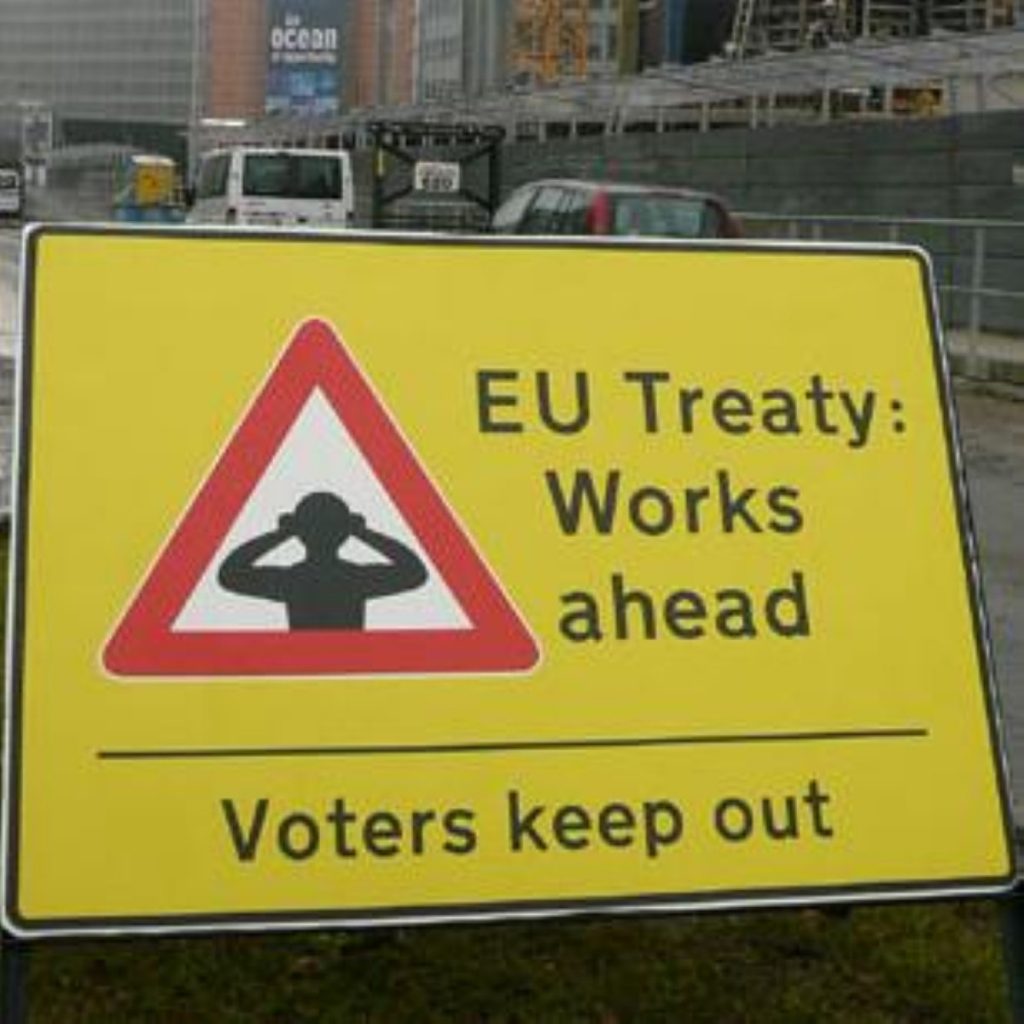Confrontation in Europe: Cameron sells reform to EU leaders
David Cameron is addressing criticisms his EU referendum plans are creating uncertainty this week, as he takes the case for reform to European capitals.
The prime minister will visit Berlin and Paris to lobby German chancellor Angela Merkel and French president Francois Hollande in a bid to make progress in persuading European politicians that substantial treaty change is required.
He will also journey to Madrid for his first official visit to the Spanish capital as prime minister.
Cameron offered a more partisan line than his January Bloomberg speech in interviews with five leading European newspapers, attacking Labour for failing to offer referenda after promising to do so.


"The fact is that in British politics… parties and governments year after year promised referendums, didn't hold referendums when they could have done," he said.
"That damaged consent for Britain's membership of the European Union and there's no good wishing that away. It exists; it's a fact. And the best thing to do when you have a problem is to confront that problem, deal with it."
Cameron has promised an in-out referendum on Britain's continued membership of the European Union by the end of 2017 if the Conservatives win an overall majority at the next general election.
That move prompted consternation in many European capitals. One ambassador attending the January speech told politics.co.uk the move would create uncertainty about the UK's future in Europe.
"To those people who say to me, ‘Ah, but you're creating uncertainty', the greatest uncertainty would be to have this problem and to wish it didn't exist," the PM added.
"Much better to have a plan for how we make changes to the European Union, how we make changes to Britain's membership, how we secure Britain's membership of a reformed European Union and we settle this issue. I have a plan."
The Bloomberg speech came after intense pressure from Conservative backbenchers for a referendum, including a non-binding defeat for the Tory leader in a Commons vote on the issue in which 81 rebels defied their party leader.
Eurosceptic Conservatives are still not satisfied. Last week ringleader John Baron delivered a letter to No 10 signed by over 100 of his Tory colleagues calling for referendum legislation to be brought forward in this parliament.
Such a move would force the next prime minister's hand on the issue whoever wins the 2015 general election.
"There would be no downside in trying to pass this legislation," Baron argued.
"If it were voted down, it would be abundantly clear which politicians are with the public in their wish for a referendum. This issue has been subject to cynical politics for too long."
Cameron is unlikely to shift his position on the issue again, however. His promise of a referendum will be a major plank of the Tories' 2015 manifesto and is being viewed by many in the party as the best response to the growing threat from Ukip.
Cameron used his newspaper interviews to signal his expectation that substantial treaty change will be required for Britain to remain in the EU.
"I'm absolutely convinced that there will be the need to reopen at some stage these treaties, not least to solve the problem of the eurozone," he added.
"The eurozone in my view needs to have further treaty change, and just as eurozone countries will argue that it's necessary to have treaty change, I think it's perfectly legitimate to argue that non-eurozone countries might need to have treaty changes that suit them."
The prime minister will also use his meetings with EU leaders to discuss Britain's agenda for its presidency of the G8, including advancing EU-US trade and doing more on tax compliance, and the situation in Syria.
"These visits are about the PM taking his positive vision of reform to the heart of Europe," No 10 said.
"He believes it's an argument that can be won, that through reform, we can make all our economies more competitive and more successful in the global race and that it is firmly in our national interest to engage with European partners on these issues to secure a better outcome for Britain."









